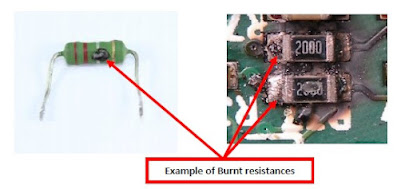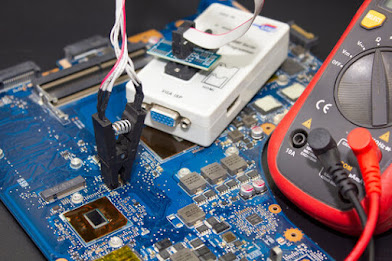Function of RAM | Working of RAM Architecture & Structure with Diagram
Overview of RAM
RAM (Random Access Memory) is a temporary based internal memory RAM Chip of your computer system, as well as mostly using in all computing devices. RAM can access all necessary data and file programs randomly from cache memory, and it is also known as “Primary Memory“, “Main Memory”, “Internal Memory”. RAM is hardware part of computer which is embedded on the motherboard.

RAM is volatile nature memory, that means it is capable to store data and instructions while power turning on. When we turn on the computer system then RAM fetches all necessary data and instructions from hard disk, and stored them. CPU uses fetched data by RAM to perform the specific tasks.
- Overview of RAM
- Functions of RAM in Computer
- Architecture of RAM
- Block Diagram of RAM
- How Does RAM Work
Functions of RAM in Computer
RAM (Random Access Memory) plays the role as temporary storage of data and program instructions which are access fastest by the CPU, when it needed.
Now, we will explain the primary functions of RAM (Random Access Memory) in laptop and mobile.
Reading Files: This is the basic function that is performed by RAM. Your computer system contains the hard drive that helps to store massive data and cause delay functioning. RAM becomes difficult task to access any file from hard drive a file and programs stored on the hard drive remains scattered and to different types of zones. To retrieve these types of files, HDD needs to move its mechanical read/write arm back and forth, when need to wait until its spinning patters spin into accurate position. Hard drive spin at the fastest speed but it delay while reading the files. Due to this process, your system gets slowdown, so RAM allows storing all file and programs at once to read from HDD side. RAM does not contain any movable parts and it works at the higher speed thus it install all information quickly while using it.
Temporary Storage: Temporary storage is second function of RAM that allows temporary storage of all data on the RAM (Random Access Memory), when it uses all programs or files. RAM is capable to store information or data which programs are actively. When your system keeps temporary data on RAM to run it temporarily it allows the system to work fast and efficient, and it helps to boost up the speed and performance significantly. You have option to enhance the RAM space as per system configuration for yielding excellent result.
Loading Applications: Another main function of RAM is also to get loading a software application, because any software otherwise application will be opened in your computer system by using the RAM itself.
For Example:
If several types of software are installed on your system and you have to need open the app of video editing. Then you will open this application; it will be firstly loaded into RAM of the computer system and open after getting to load. Even, the video editing application is installed on your system’s storage area like as hard disk; but the video editing app will be opened by using the RAM.
Architecture of RAM
In RAM, memory cells help to access all information, and it can be moved from one location to other locations randomly in your system. The process of identifying the word in the memory is same, and needs as same amount of time no matter that where cells are located in the physical memory.
The communication in between various peripherals and RAM (Random Access Memory) is done through input and output lines, and control lines help to specify the path of transfer, and selection lines address.
Block Diagram of RAM
The n data input lines deliver the all information which are hold in the memory, and n data output lines transfer the information that is come out of specific word selected in the among of 2 (Power is K) available internally in the memory. Other two control inputs identify the path of transfer as per the need.
How Does RAM Work
Random Access Memory (RAM) is capable to perform two operations like as Read and Write. Read means signal transferring out, and Write means signal transferring in. Ram permits one of these control signals, internal circuit that is embedded into inside memory which are delivered the required function, which are expected from the user side.
- Supply binary address of the required word inside the address lines.
- Supply the data bits which are must be hold into memory internal of data input lines.
- To be activated write input.
To move out the stored word out of memory unit the following occurs:
- Binary address of the needed word is supplied into the address lines.
- To be activated read input.
Likely Asked Questions)
What are the 10 functions of RAM in computer?
RAM has three main functions out of the 10 functions of RAM in using your computer system such as Reading Files, Temporary Storage, and Loading Applications; and each one is covered above in this post, you can check them.
What is the architecture of RAM with diagram in computer architecture?
Cause of RAM architecture, memory cells allow to get access all information; and it can be transferred from one location to other locations randomly in your system. The process of identifying the word in the memory is same, and needs as same amount of time no matter that where cells are located in the physical memory.
How does RAM work with the CPU?
RAM is getting to receive all instructions, which are decoded and processed by CPU. Once performed this operation, CPU instantly fetches the further set of instructions; as well as the processor will get repeat this cycle to execute functions such as running program, game or even your operating system.
What is RAM structure explain with block diagram?
Above in this post, already we have been covered about structure of RAM along with its block diagram; you can check them.







Comments
Post a Comment